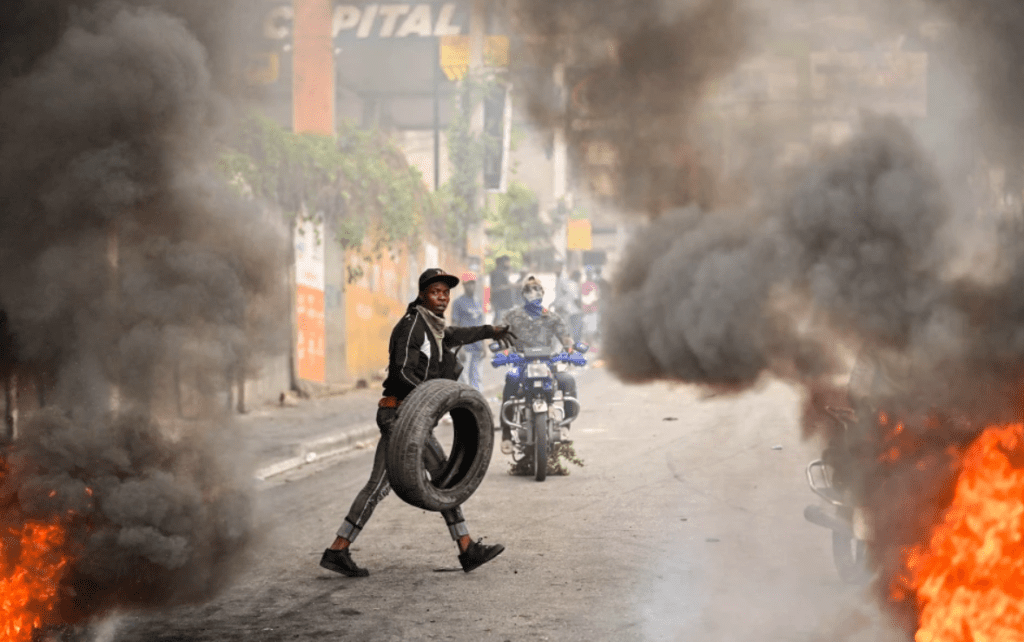In Haiti’s capital, Port-au-Prince, violence erupted as political factions moved closer to finalizing a transition council poised to replace the absent government.
Amidst this turmoil, a gun battle resulted in the death of a prominent gang leader, adding to the recent spate of violence that claimed the lives of other gang figures.
According to authorities, the Delmas 95 gang leader, Ernst Julme, commonly known as Ti Greg, was killed in a police operation.
This incident follows the killing of another gang leader, indicating a resurgence of vigilante justice.
Julme, affiliated with the “Viv Ansanm” alliance led by Jimmy “Barbeque” Cherizier, had previously escaped from Haiti’s largest prison during a mass breakout.
The formation of a transitional council to assume presidential powers and restore stability in Haiti received a nod of approval from United Nations Secretary-General Antonio Guterres.
This council, tasked with selecting a successor to de facto Prime Minister Ariel Henry, who resigned amidst escalating gang violence, aims to bridge the political divide and oversee the country until elections can be conducted.
“The Secretary-General welcomes reports that Haitian stakeholders have all nominated representatives to the Transitional Presidential Council,” stated deputy spokesperson Farhan Haq.
While progress is being made in establishing the council, challenges persist.
Discord among Haitian political factions delayed the finalization of the nine-member council initially expected to be completed shortly after Henry’s resignation.
Furthermore, threats from Cherizier against council participation underscore the precarious security situation.
Meanwhile, violence continues to plague Haiti’s suburbs, with reports of heavy gunfire near the National Palace and fresh shootings in Petion-Ville.
The resurgence of a civilian vigilante movement, exemplified by the killing and burning of suspected gang members, reflects the populace’s frustration with the absence of effective governance.
With the state’s limited presence and ill-equipped law enforcement, criminal groups exploit the power vacuum to assert control over urban territories.
Efforts to bolster security, including an international security mission, remain stalled, exacerbating the crisis.
Recognizing the urgency of stabilizing Haiti, Haq emphasized the need for the swift deployment of an international force to restore order and protect civilians.
Meanwhile, international entities, including the United Nations and various embassies, have initiated evacuations amid escalating security concerns.
In response to the escalating situation, the U.S. government facilitated the evacuation of its citizens from Haiti, prioritizing their safety amidst the growing unrest.
By adhering to the transitional process and addressing security challenges, Haiti endeavors to navigate through its turbulent period toward a more stable and democratic future.
